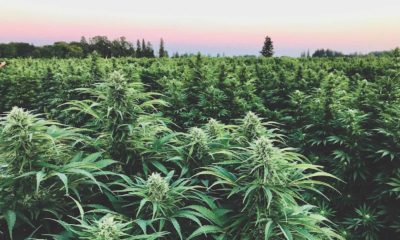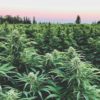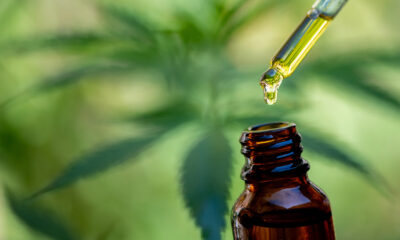
Politics
Appeal To a Higher Power: Can the UN End Marijuana Prohibition?
The UN’s World Health Organization committee on drug dependence is re-examining CBD, which could lead to CBD’s release from smothering international drug treaties.
In their quest to free marijuana from the shackles of prohibition — and to keep the healing powers of the plant away from a pharmaceutical monopoly — some legalization advocates have hit upon a novel alternate strategy.
Instead of begging Congress to relax the Controlled Substances Act or pass some far more modest marijuana-friendly measure — which the Republican leadership appears wholly unwilling to do, they’ve decided to appeal to a higher power. And now is the time.
The World Health Organization’s Expert Committee on Drug Dependence convenes in Geneva, Switzerland on Nov. 6. The expert committee is responsible for examining controlled substances in detail and influencing possible policy changes the WHO may later recommend to the United Nations.
The UN is a more important player in world drug-policy reform than you may know. The UN, keep in mind, officially declares cannabis a dangerous controlled substance, and its members —including the U.S. — are signatories to a treaty banning the drug. (It was appeals to this treaty that are partially responsible for defeating Canada’s earlier experiment with relaxing marijuana policy more than a decade ago.)
This year, the WHO is set to review CBD in detail. CBD, or cannabidiol, is marijuana’s “non-psychoactive” cannabinoid, the compound associated with eliminating seizures in children and healing brain damage. CBD is found on the top shelf of dispensaries as well as in industrial hemp currently farmed overseas. Both are cannabis Sativa, of course, but in the U.S., CBD is officially listed as a banned substance by the DEA.
As The Cannabist is reporting, the US Food and Drug Administration sought feedback from the public on 17 different substances classified as drugs, among them the synthetic opiates responsible for the much-deadlier turn in the country’s overdose crisis. Several hemp advocacy groups submitted more than 1,000 comments to the FDA, pleading that CBD be reclassified — as a food product, and not a drug. The FDA plans to evaluate the data in anticipation of the WHO’s ruling.
But anyone hoping for a quick resolution — or a quick anything — will be sorely disappointed. If you think local or national government moves slowly, the wheels of international policy turn with a speed that makes a revolving restaurant look like a dynamo.
There won’t be any recommendation from the WHO until next year at the earliest, and then there are several rounds of review here in the U.S. Next, there’s a comment period on the WHO’s recommendations — and then another comment period after that.
Plus, the same WHO committee has pondered CBD before, at its meetings in 2015 and 2016, and no substantive policy changes have come yet. Indeed, the one major change was negative: In Dec. 2016, the DEA clarified that it viewed CBD extract as a Schedule I drug.
When and if the WHO makes its views on CBD known, it could — could —be the first step towards relaxing restrictions and development in the US.
This deliberate process may be too ponderous for many advocates’ liking — and for anyone actually in need of CBD, the delay could be fatal. Still. The UN treaties outlawing marijuana are decades old, and if this is what it’ll take to undo that damage, at some point in the far future, the progress could be worth the wait.
TELL US, do you think the UN should take CBD off their list of banned substances?


























